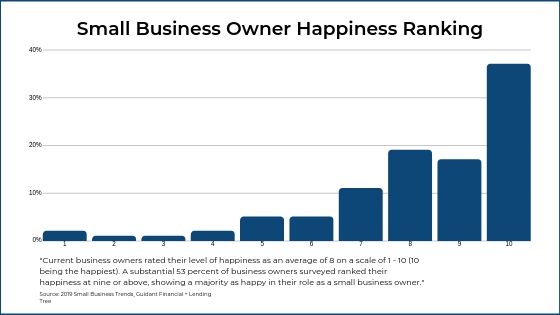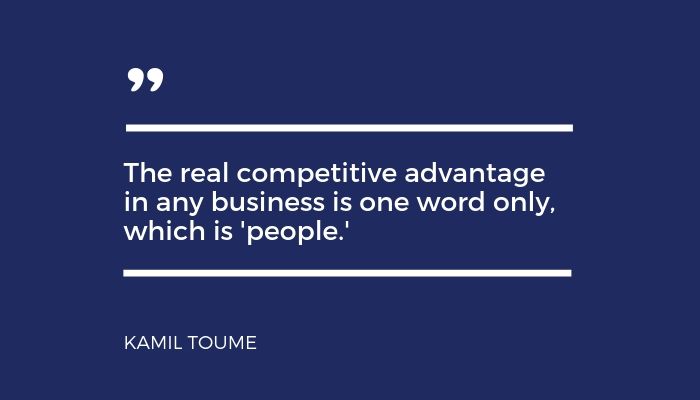It goes without saying that there are countless things to consider when starting a business.
If you’ve already been bitten by the start-your-own-thing bug, you have likely begun considering how starting a business might affect![]()
- Your long-term goals
- Your personal life
- Your career options
- Your family
- Your savings account
- Your passion
- Etc.
Notice the wide variety of things you’re taking into account as you think about starting a business. From major to minor, personal to professional, you’re likely to consider everything from the big-picture…
I could finally do something really meaningful—something that lights me up and helps me feel like I’m making a difference in the world!
…to the very detailed…
How can I come up with X and Y resources, both of which I really need before I get started?
Dream Big + Get Practical
Full disclosure: I’m inclined to root for you to say YES to starting a business.
As someone who did just that 30 years ago and has been loving it ever since, I can’t help but get excited when this conversation comes up with a client (or with anyone, for that matter).
But as much as I tend to encourage others to dream big and follow their vision, I also need to be honest with you right off the bat:
Starting a business is not right for everyone. Not even close.
If you’re thinking about it, it’s important to hold onto your big, audacious dream but also get very practical about what it would look like to make such a big leap.
This post is designed to get you thinking about some of these very real and practical steps. (Click here to skip past this intro & read or listen to the post right away.)
Growing Interest in Starting New Businesses
With business failure rates in a long-term decline and the growing gig economy making headlines regularly, it’s not surprising that many of my clients get curious and voice questions about what things to consider when starting a business.
Sure, they ask me because I’m their coach. But they also ask me because I’m a person who’s been through this transition.
I left a successful, 20-year career in the corporate world to go independent with this coaching practice—a business which I’ve now run for 30 years.
So, I have deep experience on both sides of the corporate-or-not fence. Add to this the fact that I regularly tackle the highs and lows of entrepreneurship with clients who are considering it, are doing it, or have done it (with or without success), and you can begin to see why I’ve become somewhat of a go-to resource on this topic.
Add to this the fact that I regularly tackle the highs and lows of entrepreneurship with clients who are considering it, are doing it, or have done it (with or without success), and you can begin to see why I’ve become somewhat of a go-to resource on this topic.
Business (Yours or Not) Is about People
When I hooked up my microphone to start recording some of the top things I ask clients to consider before starting a business, I realized that—in one way or another—each factor is closely related to people (including you, of course). Namely:
- Your vision, attributes, and risk tolerance
- Your current cost of living
- Where to focus your initial growth efforts
- Pricing strategy (hint: it’s about value)
- Tips for hiring help early on
Listen Now: 5 Things to Consider when Starting a Business
Transcript
Over the decades, I’ve had lots of questions from people about changing careers.
And those those questions come phrased in some form like, “Hey Bill, I’m thinking of leaving my job in corporate life…” (sometimes it’s government, etc., but but large organizational life) “and going on my own.”
Sort of a collective representation of all of these questions might go something like this:
“Hey, the workforce is changing with remote work becoming increasingly popular and the gig economy helping more and more people make a living doing what they enjoy. What are the steps I should take to break out of the corporate work mode to transition into a full-time entrepreneur? What are the things I need to consider when starting a business?”
So let me address this transition from “corporate big organization security” to “risky entrepreneur.”
5 steps that I would recommend:
Your Unique Vision & Attributes: 1st Thing to Consider when Starting a Business
Number 1 step to consider when starting a business: do a personal vision process, wherein your natural attributes are put together with your passions to determine your best picture of a personal future.
This step needs to include a very specific assessment of your risk willingness. Let me address that for a minute.
Mis-Perceptioins about the “Risk” of Starting a Business
It’s actually kind of ironic, in my opinion. It makes me chuckle. People’s view of the corporate job as secure and being on your own as risky—it’s very intriguing to me, when you think about it.
I used to be with a large corporation, so I’ve been on the (so called) “secure side of things.” And for 30 years, I’ve been on my own—I’ve been on the “risky side of things,” according to public opinion.
This is very well reflected, by the way, in how banks make loans. One of the things I discovered when I left corporate life and went on my own—the first time I went to the bank (who had loaned me lots of money when I was a corporate executive), they balked immediately when I was a sole proprietor owning my own business.
The interesting part was—and the bank couldn’t answer this; they just shrugged and said, “you make a good point”—at that time, I had 9 clients. (I now have a lot more than that, but that was relatively close to the beginning of my career on my own.)
When I was in corporate life, I had 1 boss who could have fired me any time he wanted to. And the bank considered that secure. When I have 9 clients—no 1 of which can fire me in total…it would take all 9 of them getting together—the bank considers that risky.
It’s just an interesting perception we have that there’s safety when you’re working in an organization. I would check that perspective.
Re – Consider Risk Tolerance when Starting a Business
But importantly, one of the very early things to consider when starting a business—you need to also check your own mental attitude toward risk.
If you’re going to wake up and go to bed every night white-faced, nervous, and shaking because you’re not getting an “assured” salary paycheck, then you want to know that. You could just be taking a miserable path if you go on your own.
So on a personal level, this is a very importanting thing to consider when starting a business.
Your Cost of Living: 2nd Thing to Consider when Starting a Business
Step 2 as you consider going on your own and becoming an entrepreneur:
Think through all the ways in which you could reduce your current fixed cost of living.
- Could you own a less expensive car?
- Fewer cars?
- Move into a less expensive house?
- Neighborhood?
- Property tax area?
- You name it
How Cost of Living Affects Starting a Business
You want to start a new business with maximum flexibility to use cash for your business needs and not have all of it dedicated to trying to survive your day-to-day living expenses.
One of the things in this category that “failure comes from going on your own,” is people see an opportunity and they cannot invest in it, because they are trying to protect their nest egg.
So planning for flexibility in your own personal expenses can be one of the most important things to consider when starting a business, because it can really open you up for future possibilities.
Focus on Loyalty Early On: 3rd Thing to Consider when Starting a Business
Step 3 on my list of things to consider when starting a business:
Focus on getting an initial few customers underway as fast as you can and cover them up with superior performance.
Existing customers are your best and least expensive source of growth.
A lot of people are so focused on, “Let’s run a lot of ads on facebook. Let’s run a lot of ads. Let’s run a lot of promotions. Let’s go out and call on a lot of customers. Get new customers.”
The Higher ROI of Customer Loyalty for a Startup Business
My recommendation? Take a customer, treat them like platinum, and dig deeper and deeper into your relationship with that customer – a few customers.
Their word of mouth will build your business on a very solid foundation.
The Value of Value: 4th Thing to Consider when Starting a Business
Step 4 to consider when starting a business:
Price high. I know that sounds surprising to people. Believe me, I’ve been through it.
Low price does not sell. Value sells—the value of what you create, what you produce, what you deliver to the client.
Don’t start out pricing yourself too low because you’re gun shy and you want to make sure you don’t lose the order.
Be careful of the image that you are setting.
Don’t Fear Hiring Help: 5th Thing to Consider when Starting a Business
Finally, step 5 on my list of things to consider when starting a business:
Don’t be scared to hire help.
Use contract people to avoid fixed costs, so you don’t get in to social security and healthcare and benefits and all those kinds of things.
Pay for excellence. Overcompensate.
If you find somebody, they exactly fit your need, and they charge $35 an hour, don’t be afraid to offer them $35 an hour and then periodically pay them a little bonus based on the great job they are doing for you.
You want to win them over to your side and make them feel engaged, not just employed by you and paid by you.
The whole contract labor field is growing like gangbusters in this country (and has been, by the way, for about 20 years) for the very reason that companies want to avoid all the fixed costs of deciding that they need to commit all these dollars to “permanent employees.”
Hire the contract people that you need. And stay in touch with them. And make them feel part of what you are doing and part of your successes.
They can be very long and very effective team members.
Celebrate Flexibility: Bonus If You Decide to Start a Business
And finally, look forward to all the flexibility. There’s an extra. It’s not exactly a step—more a celebration.
I celebrate the fact that you are looking at this and evaluating.
Don’t treat it lightly.
You may not be cut out for it.
But if you are, you’re headed into a world of independence and doing your own thing. In fact, you may stop wondering when you should retire and instead as, “Should I retire or not?” Because why would you want to stop when your work just became play?
Please use the comments below to share your own suggestions for things others should consider as they contemplate whether or not to start a business – as well as any successes, struggles, or questions you may have.




Leave a Reply